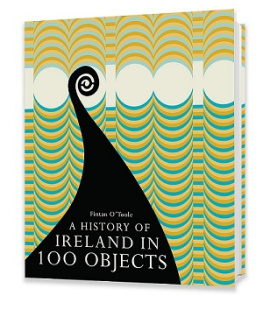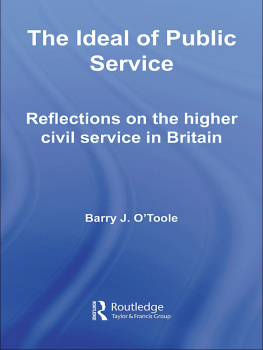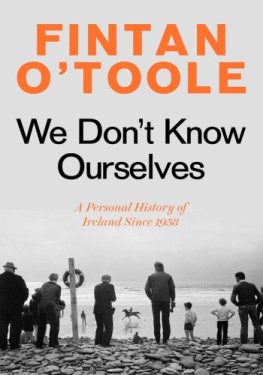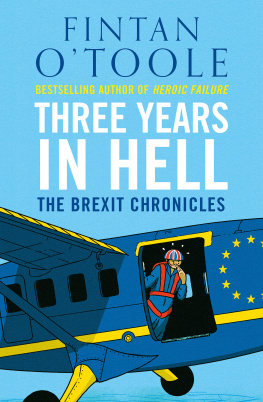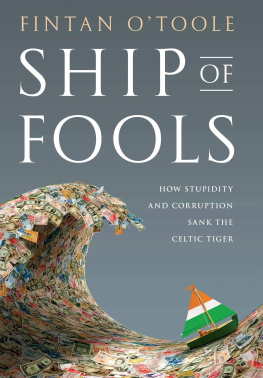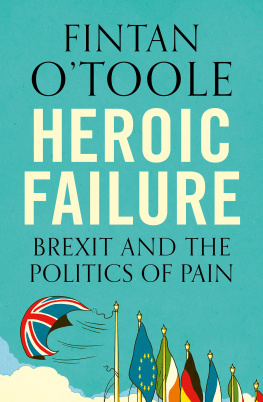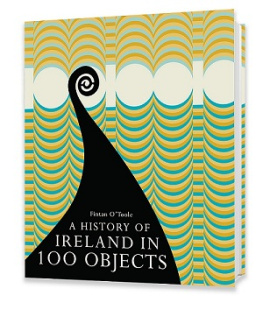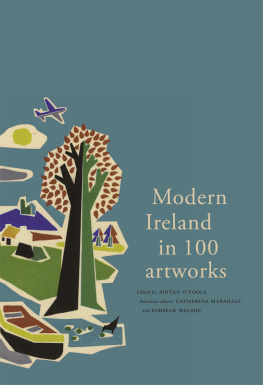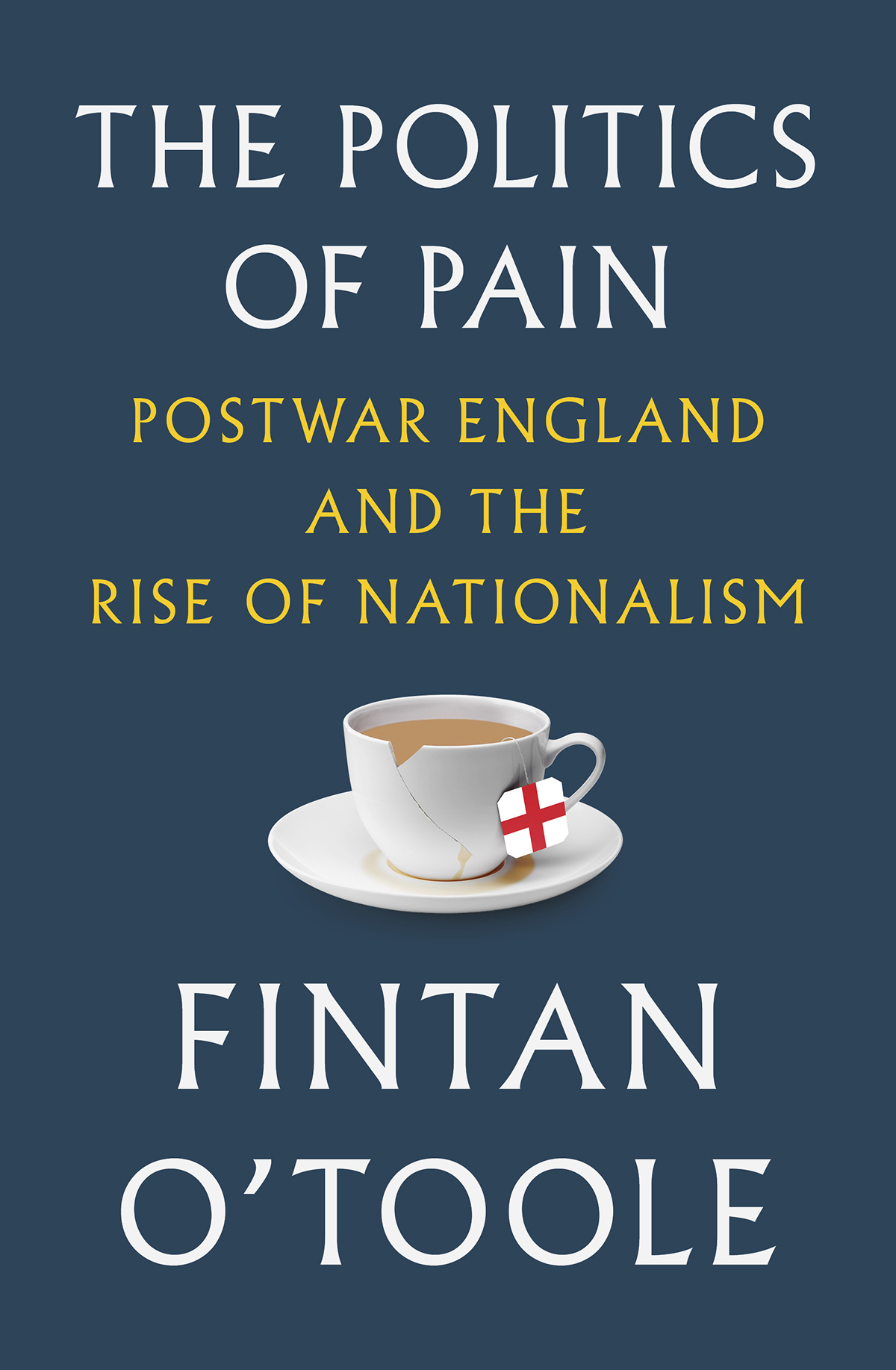Contents
Guide
Page List
FINTAN OTOOLE
THE POLITICS OF PAIN
POSTWAR ENGLAND AND THE RISE OF NATIONALISM
Contents
To Bjrn Oisn and all the new Europeans
The fact is that, in spite of the way we behave, we cannot any longer feel that the infliction of pain is merely funny
GEORGE ORWELL, 1944
I n her classic study, Watching the English, published in 2004 and updated a decade later, the social anthropologist Kate Fox wrote of her compatriots that the kind of hand-on-heart, gushing earnestness and pompous, Bible-thumping solemnity favoured by almost all American politicians would never win a single vote in this country. The English, she claimed, watched such American demagogues on the TV news with a kind of smugly detached amusement, wondering how the cheering crowds can possibly be so credulous as to fall for this sort of nonsense... such shamefully earnest platitudes, in such ludicrously solemn tones? Fox proposed that all public discourse in England must observe what she called The Importance of Not Being Earnest Rule.
Yet, just two years after the revised version of Watching the English appeared, English political life came to be dominated by shamefully earnest platitudes about national destiny uttered in ludicrously solemn tones. After June 2016, when the English heartlands of the United Kingdom voted to leave the European Union, all that smugly detached amusement seemed fatally misplaced. The English had thought of themselves as peculiarly immune to the delusions of cheering, credulous crowds. Other people (especially Americans) might be suckers for sententious appeals to an imagined national exceptionalism, but the English were protected by a force field of ironic self-deprecation. Their sense of humour was not just a form of amusement it was also a way to keep political passions in proportion, to cut dangerously grandiose ideas down to size.
One might therefore conclude that the great crisis of English identity that came to the surface in 2016 is essentially a sense-of-humour failure. The dikes of detached amusement that had kept all forms of political extremism at bay had somehow been breached and in rushed a wave of gushing earnestness about Englands special place in the world. This was certainly the case a solemn appeal to a unique national destiny was now shaping political life. But things were much stranger than that. For The Importance of Not Being Earnest rule was not really broken. Even as the country set its face towards one of the most radical disruptions in its modern history, it could not bring itself to do so earnestly. Things were desperate but not serious not serious enough, at least, for this great departure to be properly planned, responsibly negotiated or efficiently implemented.
If, as is often said, comedy is tragedy plus time, Fox observed in her study that the time required for the English to turn tragedy into humour is about a nanosecond. And, one might add, vice versa: a delightfully anarchic sense of humour, as I suggest in this book, is one of the sources of the political anarchy that took hold in England after 2016. Karl Marx claimed that everything in history happens twice the first time as tragedy, the second as farce. But in this great national crisis, the two states were simultaneous rather than sequential: there was barely a nanosecond between them. And to understand how this could be, we have to enter into a collective frame of mind in which self-deprecation and self-aggrandisement are not opposites. They are conjoined twins.
Fox wrote of the wonderfully wacky opening ceremony for the 2012 Olympics in London that The degree of self-mockery, self-denigration, obscure self-reference and self-indulgent eccentricity exhibited in that ceremony required a breathtaking disregard for the opinion of others in this case, billions of others which can only stem from a deep sense of superiority. In the years after she wrote those words, they became a perfect description of another set of games hosted in England. The strange spectacle of Brexit would show the world how a country previously admired for its apparent equanimity could so paradoxically denigrate and mock itself in pursuit of an elusive sense of superiority.
The near-implosion of British politics after 2016 was obviously a local variant of a wider crisis of democracy. As Donald Trump Jr wrote in March 2019, In a way, you could say that Brexit and my fathers election are one and the same the same rhetoric of the people versus the elites was deployed using the same dark arts of mass persuasion. It is equally obvious that the stunning result of the Brexit referendum was merely the most dramatic expression of a much wider sense of alienation in Europe. The long years of budgetary austerity after the great banking crisis of 2008, gross inequalities in the division of the spoils of economic globalization and the huge wave of refugees from the catastrophic collapse of Syria created a potent cocktail of popular anxieties. Across most of Europe, the reactionary Right has both fed and been fed by those anxieties. The old coalitions of Social Democrats and Christian Democrats struggled almost everywhere to maintain their footing on a centre ground that was rapidly narrowing. White identity politics filled the vacuum where the promise of incremental progress had once been.
It makes perfect sense, then, to see what happened in England as a local version of a global phenomenon, just one eruption on a great seismic fault line that stretches across the continents. But it is also different. For one thing, the English continued to vote both before the Brexit referendum in the general election of 2015 and after it in the election of 2017 for their traditional political parties. In England, 88 per cent of voters cast their ballots in 2017 for either the Conservatives or Labour, and this long-established duopoly won all but nine of the 533 English parliamentary seats. More strangely, those who led what was in effect a peaceful revolution in 2016, could not actually take power. The insurgent United Kingdom Independence Party (UKIP), which, under its former leader Nigel Farage created the demand for the referendum, actually lost virtually all of its vote in 2017. The leading Brexiteers in the ruling Conservative Party most notably Boris Johnson were unable to assume control of government, leaving it instead to the lackluster Theresa May, who had played no significant role in the referendum. There is something both very odd and highly distinctive about this a revolution at once triumphant and timid, boldly self-assertive in principle but in practice tentative and hesitant to the point, ultimately, of complete paralysis.
This peculiar continuity amidst the upheavals is in one sense easily explained: antipathy to Europe displaced the anti-Establishment anger that England shared with the US and other countries away from the indigenous Establishment and onto Brussels. This might even be seen as in one sense a brilliantly self-protective act by a ruling class that anticipated the coming wave of rage but channelled it away from its own shores. This, however, begs a key question why did this deflection work? How was it possible to convince a majority of voters that they needed to be liberated not from their actual rulers but from an imagined prison-house of European regulation?
To put it mildly, the Brexiteers, when placed under the pressure of making their dream project a reality, did not emerge as political geniuses. They were effective, surely, not because they had a superb plan but because Brexit was a drilling-down into the half-buried layers of a very distinctive English mindset. It hit pay dirt, and out gushed a flow of feelings highly specific to the mental terrain of post-war England. The most potent of them is a feeling that it was just not right for England to be a normal European country, that there is something amiss with an arrangement in which it appears to be just one prosperous, privileged Western European democracy among all the others. As the chief secretary to the Treasury and ardent Brexiteer Liz Truss tweeted in April 2019, We are not an ordinary country. Were an extraordinary country. The ex in Brexit also stands for exceptional, and what is exceptional about Britain is that it won the Second World War but almost immediately lost an empire. It is to the strange consequences of these closely related aspects of its modern history that we must turn for an explanation both of Brexits imaginative appeal and of its inability to function as a real political project. Its power and its impotence have the same roots in the history and culture of post-war England.


